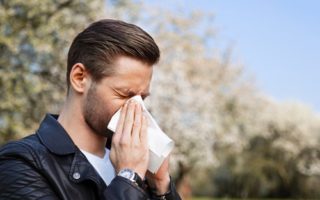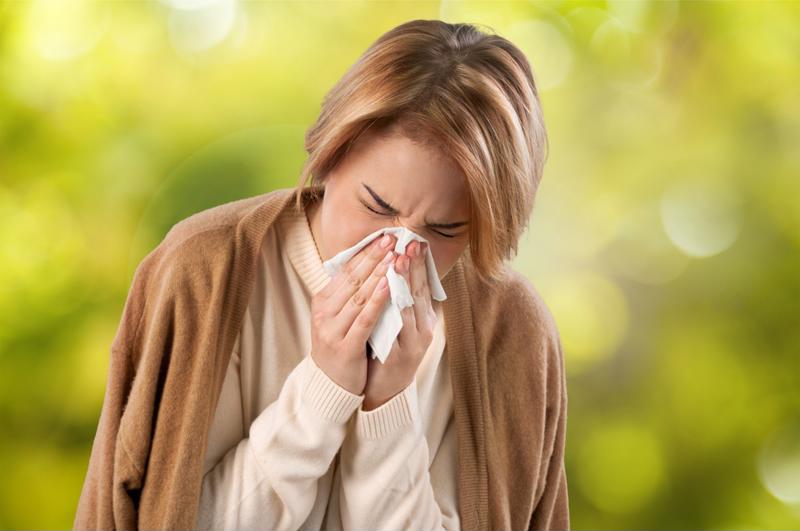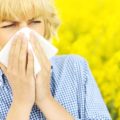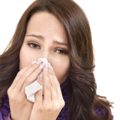
When you're feeling under the weather with all the usual symptoms – running nose, sniffles, aches, pains – it can be difficult to identify what's behind your discomfort. After all, seasonal allergies, common colds and the flu can all manifest themselves in seemingly indistinguishable ways.
Despite their similar presentations, however, these three ailments are vastly different – as are their recommended treatments. Following a treatment plan for for the incorrect diagnosis can elongate your healing time, provide you no relief from pain, and potentially even worsen your symptoms.
Next time you wake up with a sore throat and the sniffles, don't be so quick to reach for the cold medicine – a different diagnosis could be to blame.
Read on to discover important info about the differences between colds, allergies and the flu.

The common cold
Most people have had their fair share of common colds. This is largely because colds, which are caused by viruses, are extremely spreadable: According to the Mayo Clinic, colds gain access to the body through the mouth, eyes, and nose, usually by way of the hands. This means that simple handshake with a virus-carrier can leave you laid up with the sniffles if you're not careful to disinfect. The source noted that while a few types of viruses can cause a cold to develop, more often than not the disease can be traced back to a rhinovirus.
News In Health, a publication of the U.S. Department of Health and Human Services, noted that most people with common colds experience coughs, sore throats, and stuffy or runny noses. Chest pains, headaches and general fatigue are also reported fairly frequently.
Prevention magazine noted that common cold symptoms are typically concentrated above the neck. Pain that's concentrated in the chest, abdomen, or elsewhere, as well as high fevers and extreme exhaustion, are usually signs of a different underlying issue.
While you can't cure a common cold, you can find symptomatic relief through over-the-counter pain medication. The Mayo Clinic reported that acetaminophens, nasal sprays and cough syrups are among the most popular cold treatment options.
The flu
The flu is caused exclusively by the influenza virus. The Mayo Clinic noted that while the term "flu" is used liberally to describe stomach ailments, influenza actually infects the respiratory system. Like the common cold, the flu enters the body through the mouth, nose and eyes, and is usually caused by contact with an infected individual. Notably, an infected person can still spread the flu before symptoms appear and after they've cleared up, explained the source.
The flu typically comes with a fever of between 100-102 degrees, according to News in Health, though in some cases the virus can manifest itself without one. Other common flu symptoms include headaches, general aches, extreme exhaustion, fatigue, weakness, coughing and chest pain. Runny and stuffy noses can occasionally accompany flu symptoms, but not always.
"You can receive a vaccination against the flu each year."
Because the flu is viral, there technically isn't a cure, although some doctors prescribe antiviral medications to shorten healing time, ameliorate symptoms and reduce a patient's risk of developing serious complications. Many people are able to heal on their own through rest, hydration and over-the-counter pain relievers, but patients who have weakened immune systems, age-related issues or other health problems may need to receive more targeted treatments.
Fortunately, you can receive a vaccination against the flu each year, which can greatly reduce your risk of contracting the illness. Consult with your health care provider to learn more about ways to prevent and treat the flu.
Seasonal allergies
When it's not a cold and it's not the flu, chances are it could be seasonal allergies.
The Centers for Disease Control and Prevention reported that allergies are experienced by more than 50 million Americans annually, making them the sixth-leading source of chronic illness in the country. Seasonal allergies occur mainly in the spring and summer months, depending on region, and are triggered by environmental factors. The American College of Allergy, Asthma & Immunology noted that grass, trees, plants, pollen and mold are typically to blame for seasonal allergic reactions. Allergies can't be transmitted between people, but they can appear or disappear as time goes on.
Symptoms typically associated with seasonal allergies include a runny and stuffy nose, sneezing, itchy eyes and occasionally a cough, according to the Mayo Clinic. Seasonal allergies will never cause fevers or body aches, and will only rarely result in a sore throat or fatigue.
Fortunately, it's simple to manage seasonal allergies and reduce the discomfort they cause. The ACAAI recommended checking weather reports for pollen and mold levels each morning, and staying indoors if the projections are high risk. If you do have to go outside, be vigilant about avoiding triggers and frequently washing your hands. There are also a variety of allergy products on the market that can provide you with relief.









